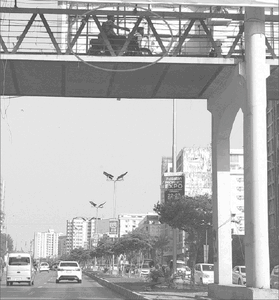
PAKISTAN has a long history of hosting Afghan refugees, beginning with the Soviet invasion of Afghanistan in 1979. Since then, millions of Afghan refugees have sought shelter in Pakistan, escaping war, conflict and political instability in their own land.
According to the United Nations High Commissioner for Refugees (UNHCR), Pakistan has hosted more than three million registered Afghan refugees. One should not forget that a significant number of refugees have remained unregistered for a variety of reasons.
Pakistan shares a complex relation-ship with Afghanistan characterised by historical, cultural and ethnic ties. Both nations have faced challenges, such as cross-border militancy, terrorism and drug trafficking.
Despite these challenges, there have been efforts for better diplomatic ties and enhanced cooperation on major issues, such as trade, security and regional stability.
International organisations, including the UNHCR, and various donor countries have supported Pakistan in hosting Afghan refugees. These organisations have facilitated with financial assistance, humanitarian aid and infrastructure development to accommodate the refugees’ resettle-ment and integration. Pakistan has played a major role in coordinating with these organisations and ensuring the welfare of the refugees.
Unfortunately, Pakistan has also experienced terrorist attacks by the Tehreek-i-Taliban Pakistan (TTP), an extremist group that often operates out of Afghanistan. These attacks have caused significant loss of life and property. The Army Public School (APS) attack in Peshawar in 2014 was the bloodiest of all such attacks by the TTP. The attacks have strained the relationship between Pakistan and the interim Taliban government in Afghanistan. The Pakistan-Afghanistan border, known as the Durand Line, has been a source of tensions between the two countries.
Disputes over its legitimacy and porous nature have led to concerns about cross-border militancy, illegal trade and smuggling.
Efforts to enhance border security and to resolve these issues have been ongoing, but challenges still persist.
In addition to registered refugees, there has been a significant influx of undocumented Afghan immigrants into Pakistan.
These individuals often face socio-economic challenges, as they lack official recognition and access to basic services. The presence of undocu-mented migrants has further strained resources and put pressure on local communities.
The influx of Afghan refugees, particularly in cities like Karachi, has posed a variety of challenges. Overpopulation, increased demand for resources, strained infrastructure and cultural differences have caused tensions between the refugees and the locals. These challenges have resulted in social and economic disparities, affecting the locals.
Despite being the host country for Afghan refugees, Pakistan faces economic and security concerns. The country relies heavily on foreign funding and loans to sustain its economy.
The strain caused by hosting these refugees further exacerbates the challenges, necessitating international assistance for the welfare and integration of the refugees.
To address these issues, efforts should focus on durable solutions. Voluntary repatriation can be facilitated, ensuring a safe and dignified return of the refugees to their homeland, supported by international organisations and cooperation between Pakistan and Afghanistan.
Furthermore, collaboration with the international community can explore resettlement options for Afghan refugees in third countries, ensuring their protection and integration. Strengthening diplomatic efforts among Pakistan, Afghanistan and neighbou-ring countries can also enhance regional cooperation in collectively addressing the refugee crisis, border security and socio-economic development.
Pakistan’s history of hosting Afghan refugees reflects its commitment to humanitarian values.
However, the prolonged presence of the refugees poses challenges to the host country, including security threats, economic strains and social issues.
Through collaboration with various international organisations and regional partners, the Pakistan government may work towards sustainable solutions that prioritise the wellbeing of the refugees while simultaeously addressing its own stability concerns.
Ali Gul Leghari
Johi
Published in Dawn, August 18th, 2023

































